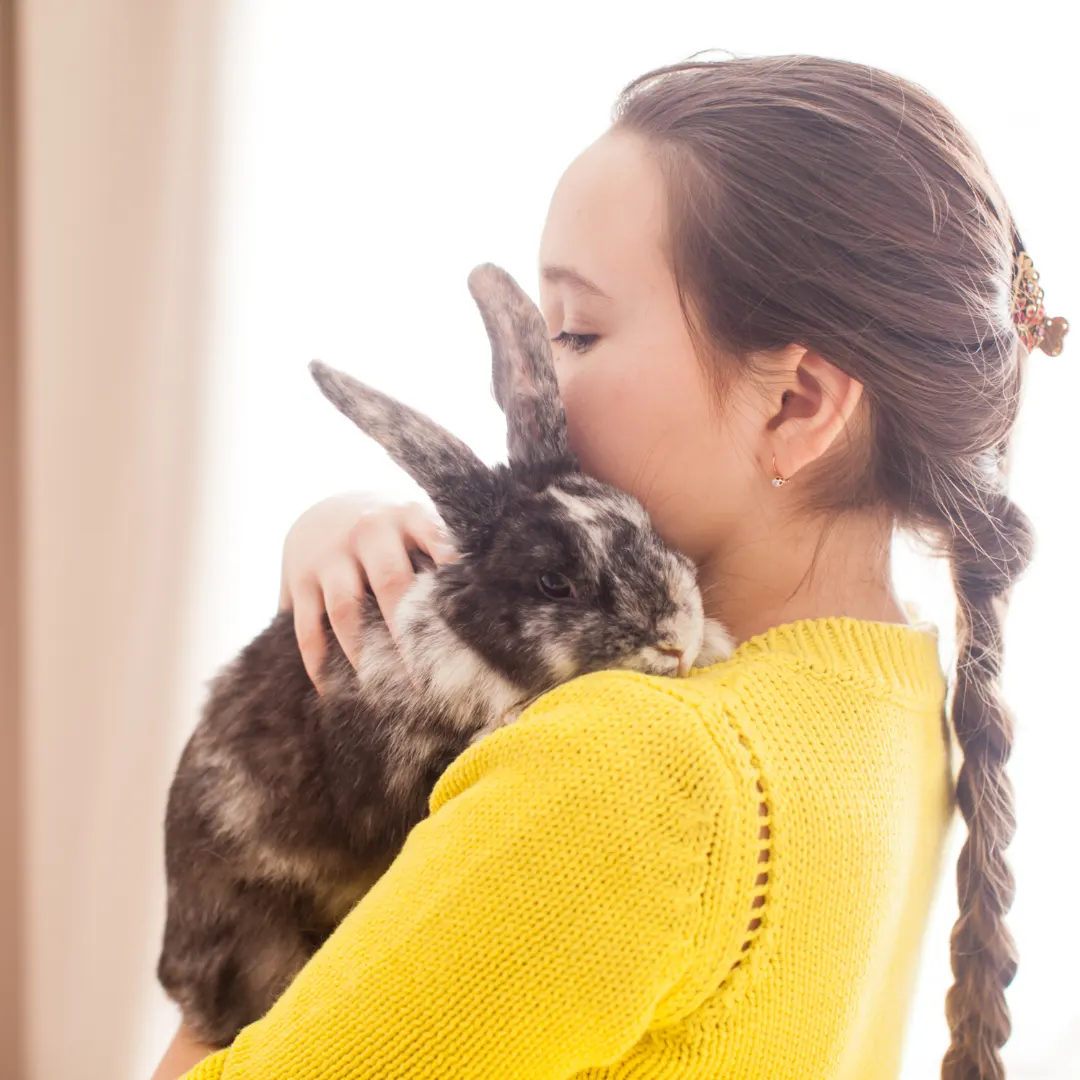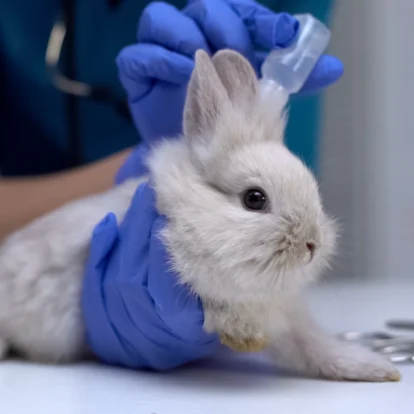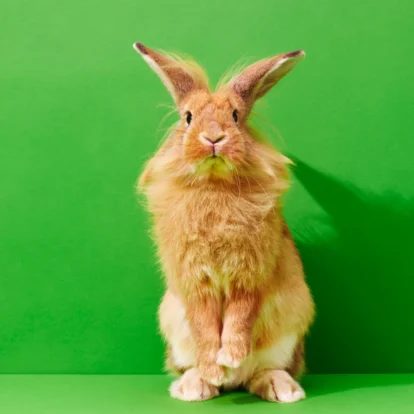Table of Contents
Introduction: Are Rabbits Good Pets?
👋 Hey there, fellow animal lovers! Ever asked yourself, “Are rabbits good pets?” 🐇 Well, you’re in luck because I’m about to spill the tea on this very topic! And to skip to the punchline – absolutely yes! 🐰
Rabbits are fabulous, affectionate animals that can make great pets. But I hear you asking, “But what about those surprising little quirks you only discover once you’ve brought your new bunny home?” or “Will my small child and the rabbit get along?” or “Will I need to turn my home into a rabbit-proof fortress?“
In this comprehensive guide, I’ll answer all these questions and more, sharing my insights from years as a committed rabbit parent. Now, I won’t give you a sugar-coated take on raising rabbits. Nope! I’ll give you it straight – the good, the bad, and the furry.
Here’s a quick snapshot of my life: I share my home with a few rabbits, other pets, my wife, and a 7-year-old daughter who thinks our house rabbits are the best thing since sliced bread. 🍞 And hey, she might be onto something! But how did we make sure our home was rabbit-safe?
And let’s not even get started on the specific diet requirements of these prey animals (spoiler alert: most rabbits are foodies at heart ❤️)! You’d think they’d be easy to please, but my male rabbit turns up his nose at anything that isn’t gourmet 👨🏻🍳. And my female rabbits? They’re great listeners but can be particular about their surroundings.
So, grab a cup of tea, make yourself comfy, and join me as we hop down the rabbit hole to explore the world of bunny parenting. Together, we’ll find out if you’re ready to spend time ⏱️, energy 🔋, and a bit of your budget 💰 on these fluffy companions.
Remember that time when I came back home to find my new bunny atop the kitchen counter, munching away on my favorite plant? 🌿 😠 Oh, the joys of learning how to rabbit-proof a house!
Get ready for bunny stories that only years of personal experience can bring.
Pros of Having a Rabbit Pal
Okay, let’s start with the Pros of the “Are rabbits good pets” question.
1. Quiet Companionship
One of the best things about having a pet rabbit 🐇 is that they’re some of the quietest animals you can share your home with. Unlike dogs 🐕, rabbits don’t bark at night or when they are alone. And if you’re used to cats 🐈, you’ll be surprised that rabbits don’t meow for your attention either. They’re like the secret agents 🕵️♀️ of the pet world, silently going about their bunny business in the quietest possible way.
You’ve hit the jackpot when it comes to being a rabbit owner living in an apartment! 🎰 I lived in an apartment with three rabbits for years, and I bet none of my neighbors had a clue I had a full house of fluffy company. It was like having cute, quiet, and clandestine roommates who kept me company without disturbing the peace and quiet.
However, there is an exception to our furry friends’ usually quiet demeanor: when they start thumping! 🥁 Thumping is when your house rabbit thumps their back legs on the ground. Depending on the flooring of your house, it can be a pretty loud noise, especially considering it comes from such a small creature.
Thumping is a rabbit’s way of communicating; it can mean they’re scared, angry, or just trying to alert you about something. It’s a bit like their version of an alarm bell 🚨. Although I have to say this is not typical behavior, and generally, they do it once or twice, and that’s it.
So, if you’re okay with occasional thumping, a rabbit might be a good fit. They are quiet, loving, and entertaining companions perfect for anyone looking for a low-noise pet. 🐇❤️ 🔇
2. Low Odor Levels
Rabbits are some of the cleanest small animals 🐇 you can invite into your home. Unlike some pets, rabbits make very little smell. Trust me, as a long-time bunny parent, I can assure you that you won’t be spending your time trying to cover up any unpleasant odors. Just like me, you’ll probably be surprised by the minimal smell.
These adorable creatures are natural groomers, spending a significant part of their day cleaning themselves. This means they usually smell fresh and clean. Plus, their poop doesn’t have a strong smell at all. I know it sounds weird, but it’s true – and as a bonus, it’s pretty easy to clean up. Especially if your bunny is litter-trained, which many are. You’d be amazed how many people are surprised when I tell them that a rabbit can use a litter box just like a cat! 😺
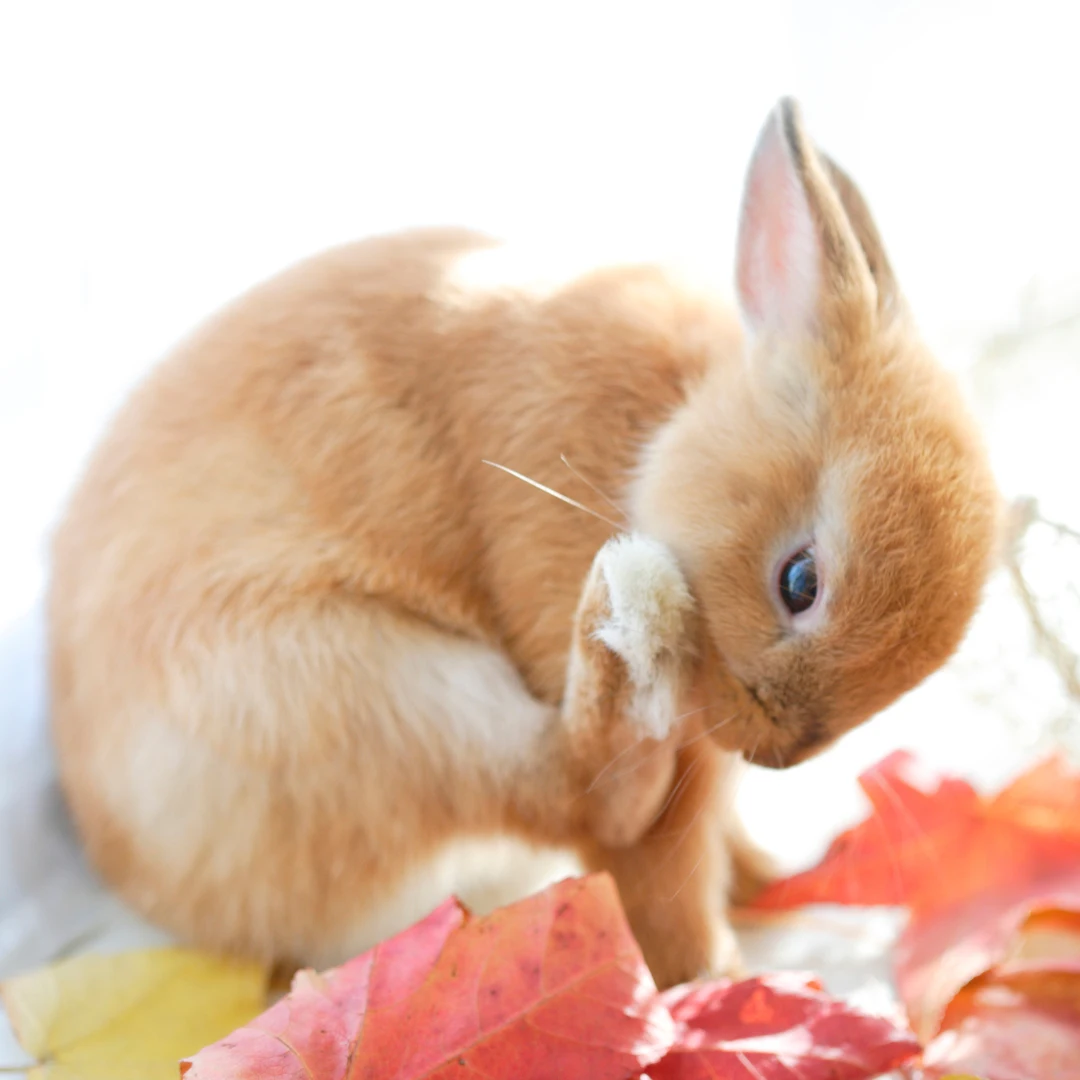
Now, we gotta talk about the not-so-pretty part: urine. Okay, rabbit pee does have a noticeable smell, but it’s manageable. This shouldn’t be an issue as long as you maintain a clean rabbit home. Make a habit of scooping out the litter box daily, and you’ll keep things under control. And if you really want to minimize the smell, spaying or neutering your rabbit can help, especially with male rabbits. 🐾
Another secret to a low-smell rabbit home is their diet. A healthy rabbit diet consists mainly of grass hay, which doesn’t produce strong smells when digested. Believe it or not, this simple diet also contributes to keeping rabbits clean and odor-free.
So, if you’re considering inviting these little furballs into your life, don’t let the worry of smells stop you. With a bit of regular cleaning and care, your rabbit will be a delightfully odor-free companion. 🐇💖🌸
3. Litter Box Trained
While on the subject of litter training, with just a bit of patience and consistency, you can teach your adorable bunny to use a litter box. It’s a total game-changer, trust me! 🙌
Here’s the thing – rabbits poop a lot, but don’t let that frighten you! Once they get the hang of the litter box, cleanup becomes super easy. Many mornings, I’ve thanked my lucky stars for that litter box. 🌟
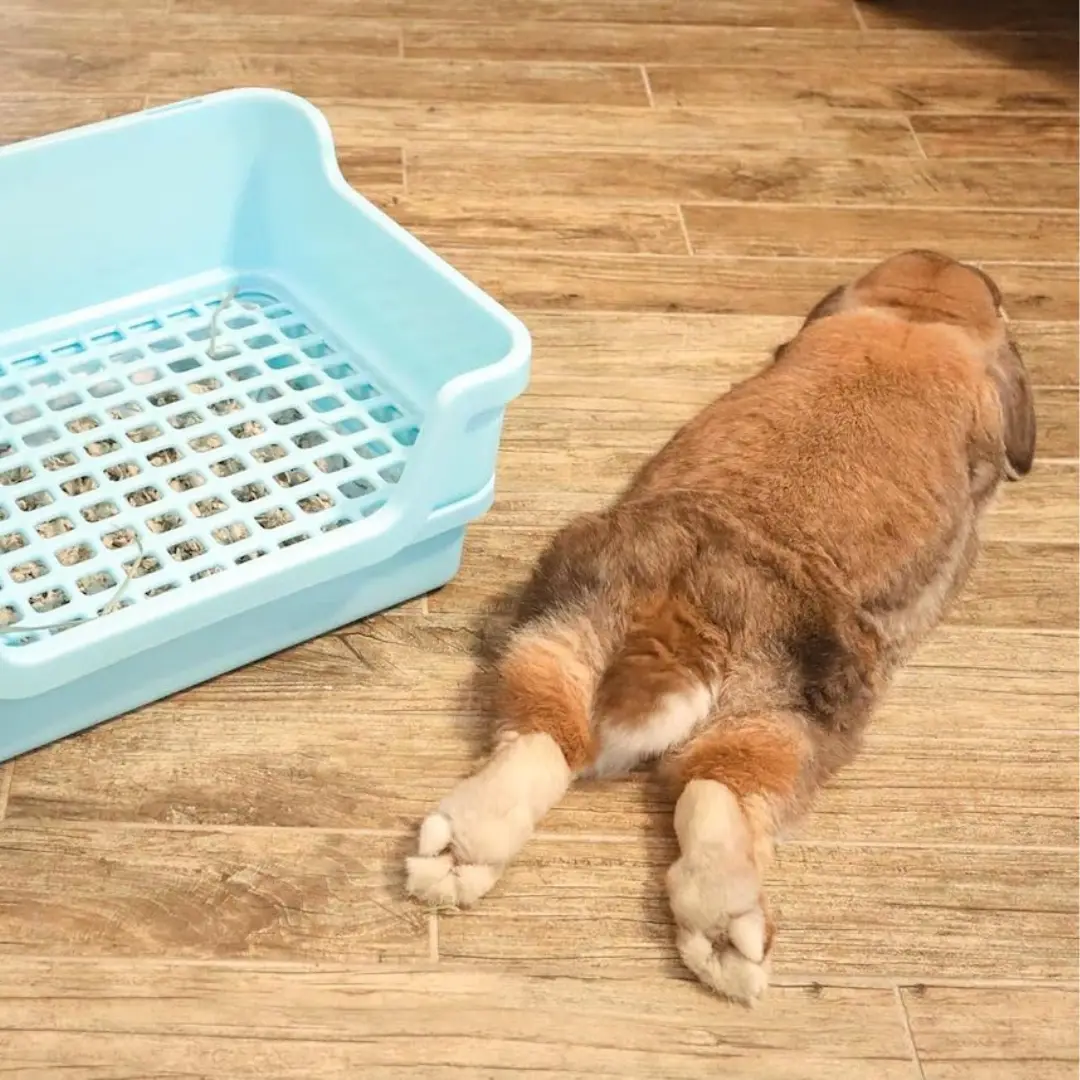
You may not know this, but rabbits naturally prefer to keep their waste in one place. This means you don’t have to worry about your rabbit leaving little surprises around the house. Like cats, they’ll develop a routine and use the bathroom whenever needed. It’s a beautiful thing to see. 🐇🚽
Now, let’s talk about spaying or neutering. This isn’t just about preventing unexpected pregnancy and baby bunnies, although that is a benefit. Having your rabbit spayed or neutered can actually make litter training much easier, especially for those hormone-driven behaviors.
You know what I mean if you’ve ever had an unneutered male rabbit marking his territory! And while we’re on other rabbits, remember that every bunny is unique and may train at their own pace. But, with some perseverance, it’s a good match for almost every rabbit.
Lastly, indoor rabbits need a safe space they can call their own, and a litter box can play a key part in this. It creates a sense of ownership and helps these little guys feel at home. So, don’t be afraid of a little poop – with a litter box and some patience, your house will stay clean, and your rabbit will be happy! 🏡🐾🐇💖
4. Long Lifespan
Let me tell you, rabbits are wonderful pets that live a long, long time! On average, our little companion rabbits have a lifespan of about 10 years. That’s right, a whole decade! 🗓️🐇 That’s longer than a lot of dogs and cats! Of course, this can vary based on your rabbit’s breed and living conditions.
When you bring a new rabbit home, you’re not just getting a pet for a few years but a friend who will be with you for a good chunk of your life. Your rabbit will grow with you, sharing your ups and downs and adding a bit of fuzzy comfort to your life. 🏡💖🐇
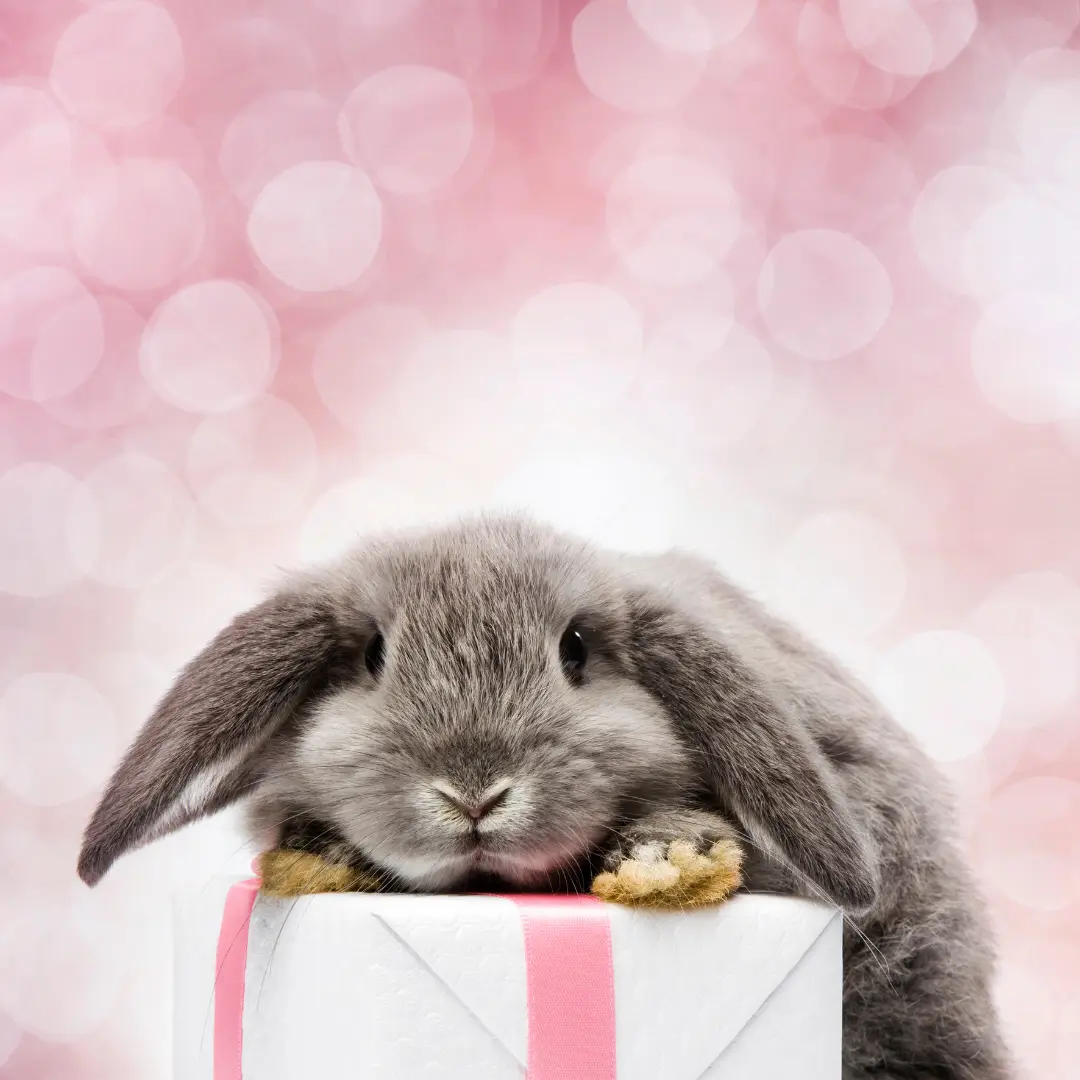
Well-cared-for house rabbits can even live into their teens! They become such great companion animals, providing a consistent source of love and joy.
Now, a longer lifespan also means more responsibility. There’s a lot to consider before bringing a rabbit into your home. You’ve got to think about diet, habitat, healthcare, and companionship.
And just like us, rabbits love social interaction! They’ll want to be part of your everyday activities. So, you’ll need to ensure you’re ready to commit and give them the care they need.
Rabbits are not just pets – they’re family! 👨👩👧👦🐇 They’re not like the outdoor rabbits you might see in your backyard. They need a safe, comfortable indoor space to live, play, and grow. This is particularly important if you have children, as it’s a beautiful opportunity to teach them about responsibility and caring for others.
So, are you ready to welcome a long-term, furry family member into your home? Trust me, they make life so much more beautiful! 🏡🐾🐇💖
5. Social and Affectionate
Rabbits are truly wonderful companions. 🐇💕 They’ve got so much personality packed into their little bodies. They love being around their favorite humans, often keeping a keen eye on what you’re doing. I mean, my little pals always need to know where I am. It’s like having a tiny, furry chaperone around the house. It’s so cute how they’ll come right up to you, begging for a treat with those twinkling eyes. 🥕👀
And then there are those adorable binky moments! I can’t count the number of times I’ve been kicked back on the sofa, watching TV, and my furry friend starts binking around the room. It’s the perfect little burst of joy that always makes me smile. 😄🐇
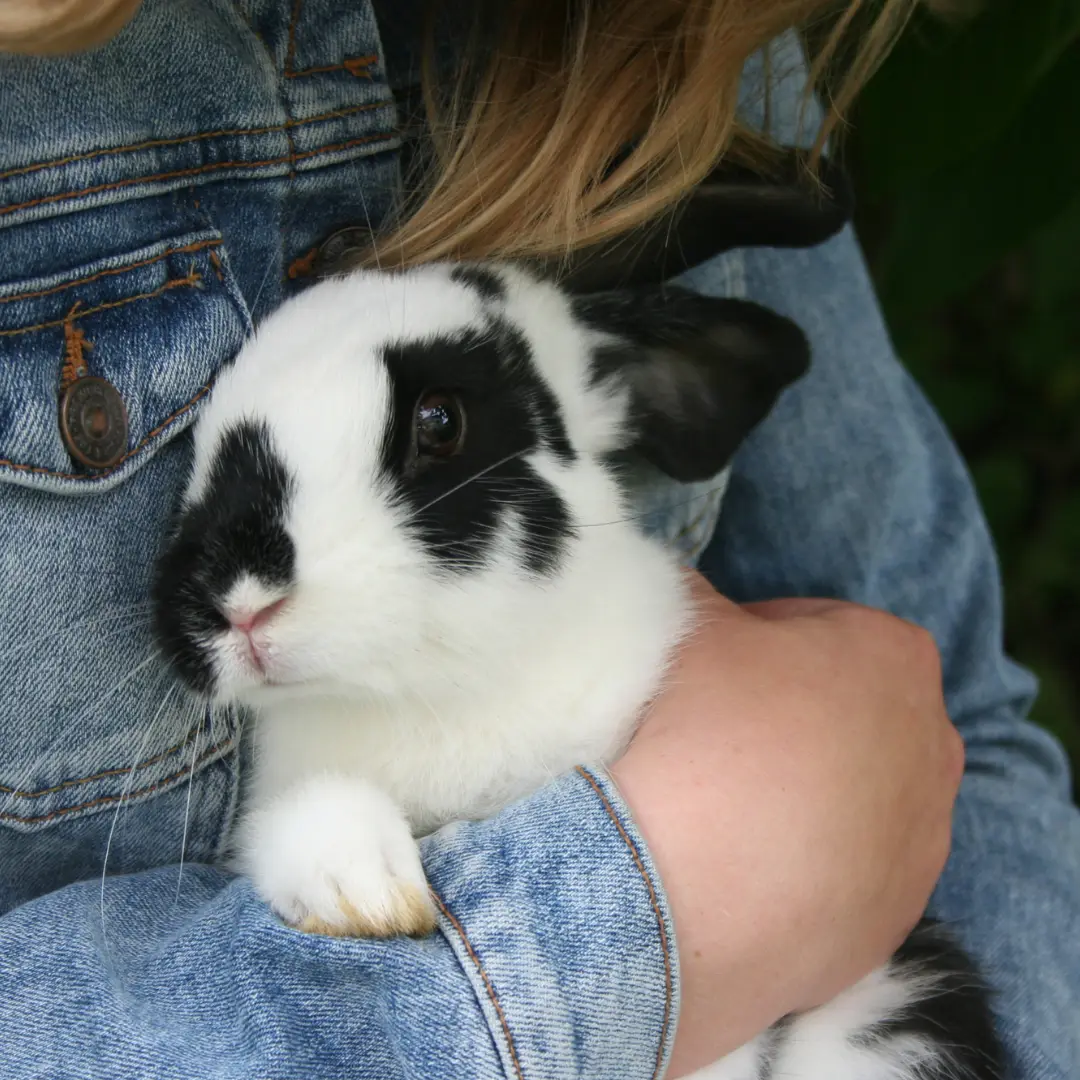
Rabbits are pretty flexible and adapt well to people’s schedules. Just make sure they get their daily exercise and enrichment activities. These activities keep them happy, and they’re entertaining for us humans, too! A rabbit home is full of such delightful moments.
Let’s talk affection now. Rabbits have their unique ways of showing love. 🥰 Sometimes, my bunnies will lie beside me, a sign of trust that never fails to melt my heart.
And those grooming sessions! The little licks they give you, it’s like they’re saying, “I’ve got you, and I care for you.” 💖 And trust me, the joy you feel when your bunny flops next to you, utterly content, is unparalleled.
These furry friends are also great for children, teaching them about responsibility and empathy early.
They’ll run circles around your feet when excited, purr when happy, and might even hop into your lap for some cuddle time.
Rabbits are not just pets; they are a part of your family, bringing so much love and warmth into your home. 🏡💖🐇
6. Adaptable Living Spaces
Living with bunnies in a small apartment taught me a lot about adaptability. 🐰💕 Despite the limited space, my furry friends thrived, hopping around, squeezing into tiny hidey-holes (usually ones I didn’t even know existed!). They reveled in their indoor playground, thanks to a few well-placed toys and hideouts I picked up from the local pet store.
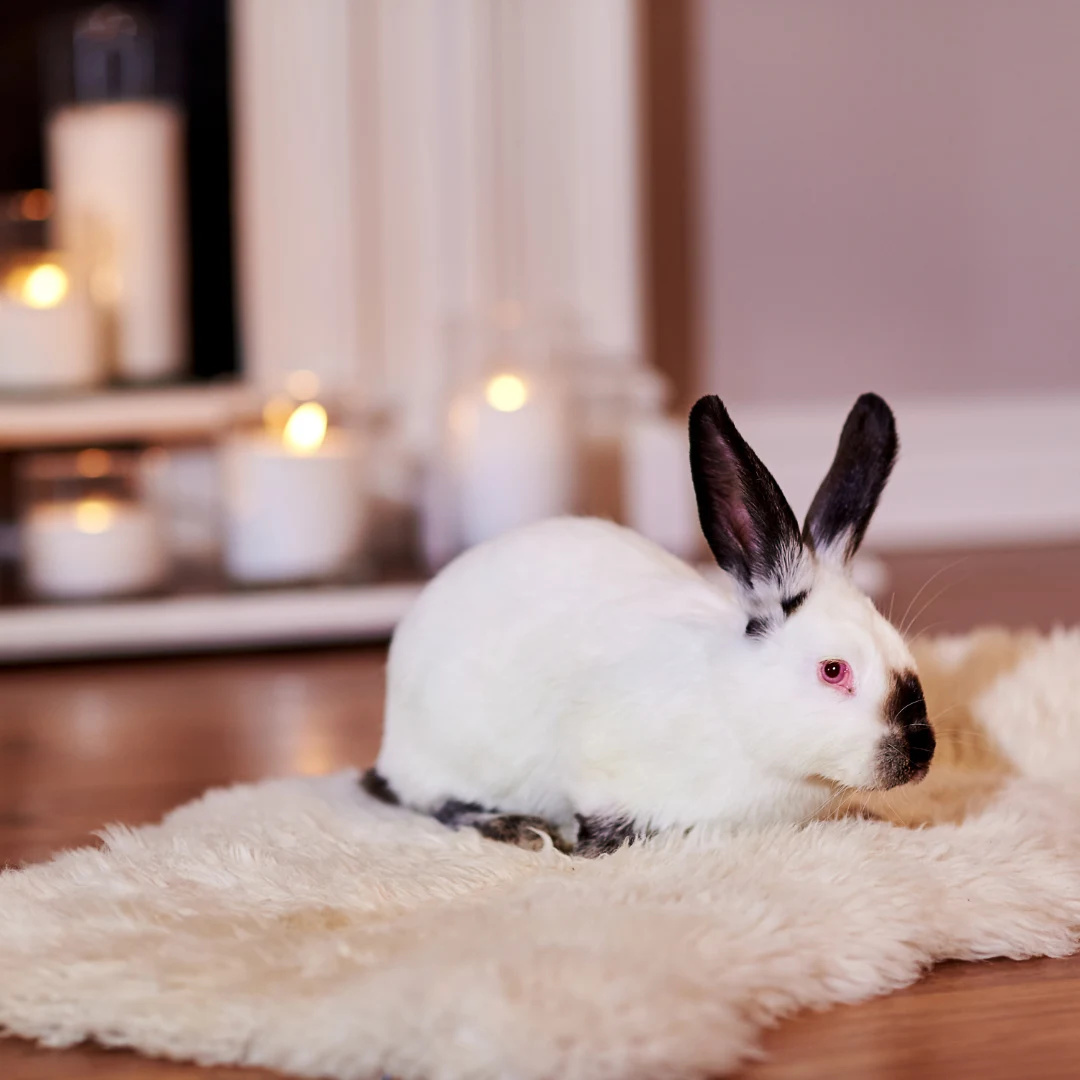
I was apprehensive when we decided to move to a larger home. Years in the apartment had made us all cozy and comfortable, and I worried if my bunnies would adapt. Well, I was in for a surprise! 🏠🐇
The squad took to the new place like fish to water. They loved the additional space, and their antics multiplied, much to the amusement of my daughter. They were darting around the house, discovering nooks and crannies, making the place their own. It was like watching little explorers on a mission! 🕵️♂️🐇
The transition from an apartment to a house reiterated these creatures’ adaptability. They can make any place their home with the right setup and proper rabbit care. As a companion rabbit parent, I realized that what matters most to them is the love, attention, and care you shower them with. Space is secondary; your devotion is their primary need! 🏡❤️🐇
So, whether you live in a compact studio or a sprawling villa, rest assured your bunny buddies will be fine. Just keep a close eye on them, provide for their needs, and let them color your world with their charm and antics! 🌈🐇💖
Cons to Keep in Mind
Now, to the Cons of the “Are rabbits good pets” question. Because not everything is rainbow 🌈 and sunshine ☀️ with house bunnies. You need to keep a few things in mind when owning a rabbit indoors.
1. Chew on Everything
So, about that chewing habit… 🐇 Rabbits have a natural instinct to gnaw on pretty much anything and everything. This isn’t just a cute quirk – it’s actually vital for their health!
Rabbits need to chew to keep their constantly growing teeth at a manageable length. So, your furniture, baseboards, and cables may fall prey to their relentless chompers. 😳😱
Naturally, this can lead to some serious injuries if they munch on something harmful. My heart nearly stopped when I found my bunny chewing on a phone charger! 🐰⚡ We quickly learned we needed to rabbit-proof the entire house. This involved keeping cables, chargers, and other hazardous items out of their reach. I found that local pet stores or online stores offer a great range of bunny-safe toys and chew items that satisfy their gnawing needs and keep them entertained! 🛍️🐇🧸
And did I mention their digging instincts? I used to catch my little troublemakers trying to dig into the corners of rooms and, on one memorable occasion, completely destroy a section of carpet. 🕳️🐇
Yep, these adventurous creatures are programmed to dig holes, which isn’t particularly conducive to maintaining a pristine house. It’s quite a sight, but certainly not good for the house. 😂💔 The solution? Place a plastic mat or hay box in their designated play area to satisfy that digging itch! 🙌🍂
So, if you’re a bunny parent, prepare yourself for some home adjustments! But trust me, their charm and love are worth it. Just keep a close eye on them and provide them with safe alternatives to chew and dig, and your home (and bunnies) will be fine! 🏡💕🐇
3. Delicate Diet
Don’t let their small size fool you – rabbits have quite the appetite! 🐰🍽️ Unlike the diets of our fur buddies like dogs or cats, rabbits need a specific diet to keep them healthy and hopping. Their digestive systems are very delicate, and feeding them the right foods can make a world of difference. 🥕🌽
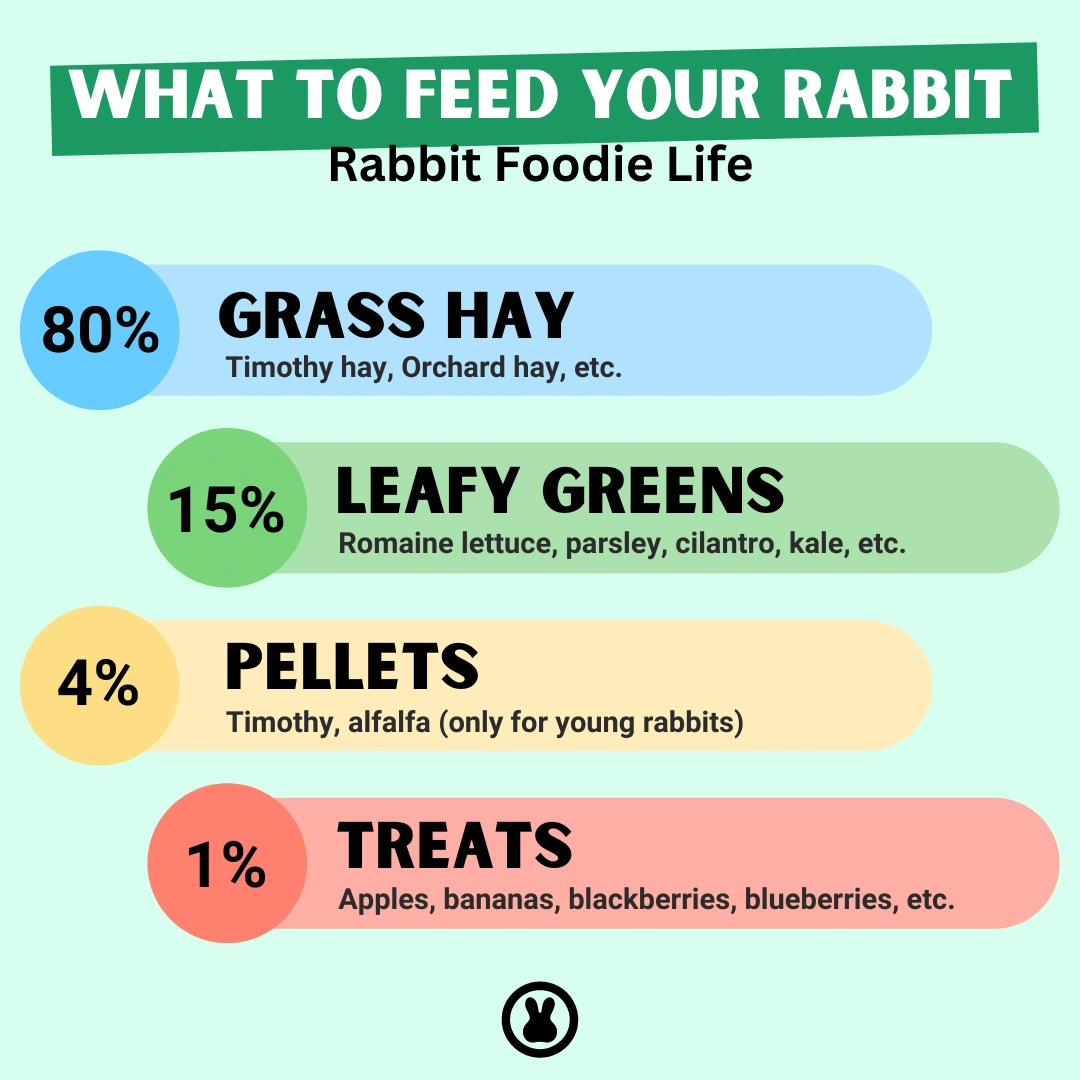
Now, the most significant part of their diet, about 80%, should be grass hay. They should have an unlimited supply of it. It’s crucial for their dental and digestive health.
These cute little chewers need to nibble on hay all day. 🌾💕 There are several types to choose from: Timothy, orchard, meadow… You name it!
The nice part about hay is that it’s not just a meal but also a plaything. Many rabbits enjoy burrowing in or even throwing it around! 🐇🌾
Now, let’s talk about the veggie side of things. About 15% of our pet rabbits’ diet should consist of fresh leafy greens. Romaine lettuce, parsley, cilantro, or kale are great choices. Just ensure you introduce them slowly to avoid any tummy troubles. 🥬🐰
Next up, we have pellets. While they should only make up about 4% of your bunny’s diet, they’re still important. They are packed full of all the vitamins and minerals your rabbit needs. Just make sure to opt for the high-fiber, low-protein ones. 🥣🐇
And finally, we come to the sweet part – treats! 🍎🍓 Now, these should be given sparingly – only about 1% of their diet. Treats can include bits of carrots or fruits like apples or berries or store-bought bunny treats. But remember, many rabbits can’t resist them, so it’s important to not overindulge your furry friend! 😂💕
While it may seem like a lot, keeping to this specific diet will ensure your rabbits stay happy and healthy. And seeing their little noses wiggle in excitement during meal times? That’s just the cherry on top! 🐰🍒💖
3. Initial Costs and Expenses
So, let’s dive right into the bunny budget. 🐰💰 Owning a rabbit, like any pet, isn’t without its expenses. Good news is, after the initial setup, the ongoing costs mainly revolve around their diet and healthcare.
I spend around $30-$50 monthly on a small breed rabbit’s diet. This includes a big bag of hay, a smaller bag of high-quality pellets, some fresh leafy greens from the grocery store, and an occasional treat or two. 🥦🍎
As for health care, you need to be prepared. Rabbits require a specialized vet trained to handle their unique needs – a small animal vet. I’ve found that the House Rabbit Society is a great resource for finding these kinds of vets near you and local rabbit rescue groups. I spend between $130 and $150 on annual vet visits. It doesn’t account for any unforeseen emergency care visits, which could potentially run up the bill. 🏥👩⚕️
One more thing to keep in mind is that it’s essential to have your rabbit spayed or neutered, which can cost between $350 and $500. I know it’s a bit pricey, but trust me, it’s essential for their health and helps avoid unwanted bunny babies! 🐇💕
Last but not least, let’s not forget about the adoption fee. I adopted one of my little furballs from an animal shelter, costing around $100. Remember, adoption is a beautiful way to give a bunny a second chance at life. Again, the House Rabbit Society is a great source for finding local shelters and rescue groups where you can adopt a fluffy pal. 🐾❤️
And I’m not considering other costs like a rabbit cage, toys, litter box, etc., which can vary depending on your budget and preferences. However, if you plan to adopt a rabbit, it’s essential to have a safe enclosure for them to roam freely in when you’re not around to supervise. 🏡🐰
Wrapping Up: Are Rabbits Good Pets?
So, are rabbits good pets? Despite the costs, cons, and responsibilities highlighted above, the answer is a resounding yes! 🎉🐇 The joy and companionship that these fluffy creatures bring are unparalleled. They’re social animals by nature, and with time and patience, they’ll become a part of your family.
Plus, their adorable antics and quirky personalities will keep you endlessly entertained.
Are you ready to welcome a new furry friend into your life? 💗🐰🏠

